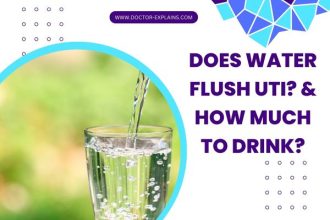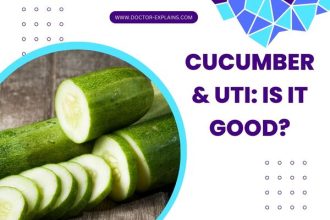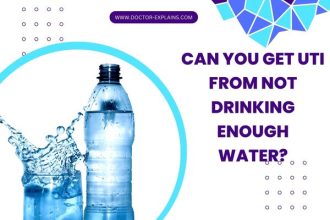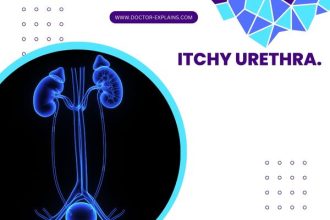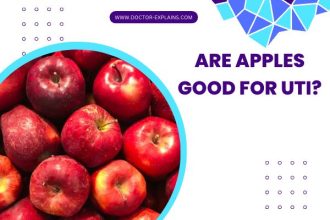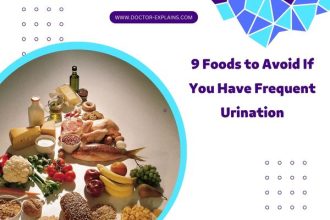There are no specific foods to avoid while taking nitrofurantoin. However, it’s important to maintain a balanced diet and stay well-hydrated. Limit excessive caffeine and alcohol intake, which may worsen UTI symptoms and irritate the urinary tract. Follow your healthcare provider’s instructions and discuss any dietary concerns.
Key Facts:
- There are no specific foods to avoid while taking nitrofurantoin, but maintaining a balanced diet and staying well-hydrated is important.
- Limit excessive caffeine and alcohol intake, which may worsen UTI symptoms and irritate the urinary tract.
- Drinking plenty of water is crucial during a UTI, as it helps flush out bacteria from the urinary system.
- Vitamin C-rich foods, like oranges, strawberries, bell peppers, and kiwi, can help inhibit bacterial growth.
- Probiotic-containing Foods like yogurt, kefir, sauerkraut, and kimchi are rich in probiotics and can be a valuable addition to your diet while taking antibiotics.
- Some factors can impact nitrofurantoin’s absorption and effectiveness, such as the timing of medication and meals and the possible impact of antacids and supplements.
- Always follow your healthcare provider’s instructions regarding nitrofurantoin and discuss any concerns about food interactions or dietary restrictions.
Nitrofurantoin and Food Interactions
Nitrofurantoin is an antibiotic often prescribed to treat urinary tract infections (UTIs). In general, there are no specific food restrictions associated with this medication. However, maintaining a balanced diet and staying well-hydrated play crucial roles in supporting your body during treatment.
Foods and Beverages to Limit or Avoid
While nitrofurantoin doesn’t have specific food interactions, some foods and beverages can aggravate UTI symptoms or interfere with your recovery. Here are two categories of substances to limit or avoid:
Excessive Caffeine Intake
Drinking too much caffeine can exacerbate UTI symptoms by increasing bladder irritation and the urge to urinate. Beverages high in caffeine, such as coffee, tea, and some sodas, should be consumed in moderation. Instead, opt for water, herbal teas, or caffeine-free alternatives to prevent worsening symptoms and ensure proper hydration.
Alcoholic beverages.
Alcohol can cause dehydration, which may hinder your recovery from a UTI. Additionally, it has the potential to interact with medications, including antibiotics, and reduce their effectiveness. To support your body’s healing process, it’s best to avoid or limit alcohol intake while taking nitrofurantoin.
The table below illustrates some of the foods and drinks that may worsen UTI symptoms:
| Foods and Beverages | Reason for Worsening UTI Symptoms |
|---|---|
| Caffeinated drinks (e.g., coffee, tea, soda) | Increased bladder irritation and the urge to urinate |
| Alcohol | Can cause dehydration and potentially interfere with medication effectiveness |
| Spicy foods | May irritate the urinary tract and worsen symptoms |
| Artificial sweeteners | Could aggravate bladder irritation in some individuals |
| Acidic foods (e.g., tomatoes, citrus fruits) | May cause urinary tract irritation in sensitive individuals |
Foods That May Support Recovery from UTIs
While there aren’t specific foods to avoid, some dietary choices can help support your recovery from a UTI:
Hydration and Water Consumption
Staying well-hydrated is vital during a UTI, as it assists in eliminating bacteria from the urinary tract. Strive to drink at least eight 8-ounce glasses of water daily or adhere to your healthcare provider’s guidance.
Foods High in Vitamin C
Vitamin C-enriched foods can raise the acidity of urine, potentially restricting bacterial proliferation. Foods high in vitamin C encompass oranges, strawberries, bell peppers, and kiwis.
Foods Abundant in Probiotics
Foods like yogurt, kefir, sauerkraut, and kimchi contain probiotics, beneficial bacteria that support gut health and may aid in re-establishing the balance of good bacteria in your body. These foods can be a worthwhile addition to your diet while using antibiotics.
Factors That May Affect Nitrofurantoin Absorption
Although nitrofurantoin doesn’t have specific food interactions, some factors can impact its absorption and effectiveness:
Timing of Medication and Meals
Taking nitrofurantoin with food or milk can help minimize stomach upset. However, it’s essential to follow your healthcare provider’s instructions regarding the timing of your medication and meals to ensure optimal absorption.
Possible Impact of Antacids and Supplements
Some antacids and supplements, particularly those containing magnesium trisilicate, can interfere with nitrofurantoin absorption. Consult your healthcare provider before taking antacids or supplements while on nitrofurantoin to avoid potential interactions.
Tips for Taking Nitrofurantoin
To ensure the best possible outcome while using nitrofurantoin, follow these tips:
- Follow the healthcare provider’s instructions: Always take nitrofurantoin as prescribed by your healthcare provider, and don’t hesitate to ask questions about dosage, timing, or potential side effects.
- Stay consistent with your dosing schedule: Take nitrofurantoin at evenly spaced intervals throughout the day to maintain a consistent level of the medication in your system.
- Monitor for side effects and allergic reactions: Keep an eye out for signs of side effects, such as stomach upset or headaches, and report any severe or persistent symptoms to your healthcare provider. If you experience signs of an allergic reaction, like difficulty breathing or skin rash, seek immediate medical attention.
Conclusion
While there are no specific foods to avoid while taking nitrofurantoin, maintaining a balanced diet and staying well-hydrated are crucial for your recovery.
Limiting caffeine and alcohol intake can help prevent the worsening of UTI symptoms and support your body’s healing process. Additionally, consuming foods rich in vitamin C and probiotics can enhance your body’s natural defenses.
Always follow your healthcare provider’s instructions regarding nitrofurantoin and discuss any concerns about food interactions or dietary restrictions.
Doing so can ensure a smoother and more efficient recovery from your UTI.
